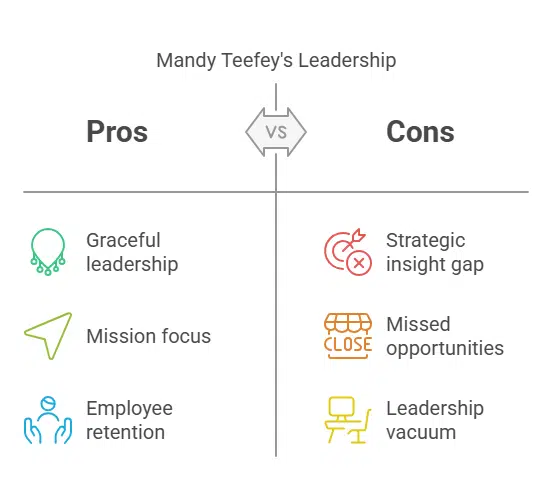Selena Gomez’s mental health startup Wondermind, co-founded with her mother Mandy Teefey and entrepreneur Daniella Pierson, is reportedly facing severe financial trouble. The startup, launched in 2021 with a mission to revolutionize mental fitness and remove the stigma around mental health, has recently made headlines—not for its content, but for internal money problems that left staff unpaid and vendors in limbo.
According to an in-depth report published by Forbes on May 11, 2025, Wondermind was unable to pay its estimated 15 full-time employees in March 2025. Freelancers and vendors, who had delivered services over previous months, are still owed hundreds of thousands of dollars, sources familiar with the matter alleged. One PR agency alone is reportedly owed about $60,000.
While Wondermind has assured the public that it has “rectified” these payment issues and plans to complete all dues by Monday, May 12, sources told Forbes and Page Six that the crisis was so severe that Teefey had to take out a loan against her home in Los Angeles to help fund payroll and keep operations afloat.
Internal Emails Reveal Terminated Health Benefits and Employee Concerns
Adding to the confusion and distress, Forbes obtained internal emails sent by Mandy Teefey to Wondermind staff in March. In those emails, Teefey reportedly informed employees that the company’s employee health insurance would be discontinued, citing financial difficulties and delays in securing further investment.
“We apologize for the email on a wellness day,” read one of the internal communications, a particularly ironic note given the company’s mission centered on mental well-being. The email explained that Wondermind had been actively working to secure its next round of funding. Employees were also told they could opt for COBRA coverage, a federal program that temporarily allows workers to continue their employer-provided health insurance at their own expense.
Multiple employees, according to Forbes, felt blindsided by the financial collapse. Several questioned whether the leadership—especially Mandy Teefey—had the necessary experience to run a startup, despite her background in talent management and entertainment.
Mandy Teefey Appointed Sole CEO After Co-Founder’s Exit
Sources familiar with Wondermind’s internal dynamics claim that financial and strategic challenges began to mount following Daniella Pierson’s departure from daily operations in early 2023. Pierson, who previously served as CEO and is the founder of The Newsette, was seen by many as the operational backbone of the startup.
After Pierson stepped away, Mandy Teefey reportedly took over as sole CEO—a decision that employees say created leadership vacuum and confusion. While Teefey has years of experience managing her daughter Selena Gomez’s film and TV career, many insiders believe she lacked the strategic and business insight needed to scale a startup in the health-tech space.
Some team members claimed that Teefey rejected multi-million dollar brand partnerships, including a lucrative potential collaboration with Airbnb, simply because those brands wanted Selena Gomez to participate more actively in the campaigns. This decision, according to these sources, reflected a lack of business acumen and missed opportunities to secure revenue.
However, Wondermind’s Chief of Staff, Emma Wright, refuted these claims in a statement to Forbes, calling the accusations “insanely, grossly misleading.” Wright defended Teefey’s leadership, saying she has led the company with “pure grace” and has focused tirelessly on keeping everyone employed and the mission alive.
Financial Struggles and Efforts to Recover
Founded in 2021, Wondermind raised $5 million in seed funding in 2022 and was valued at $100 million, according to Fortune. The company positioned itself as a content-driven platform offering podcasts, expert interviews, wellness exercises, and journaling prompts aimed at mental fitness. With celebrities involved and strong early buzz, Wondermind was seen as a promising entrant in the mental health startup space.
But by 2025, the company was reportedly experiencing classic “startup growing pains,” with rising expenses and slower-than-expected monetization. Wondermind itself admitted in a statement to Page Six that it has had a tough few months.
“Like many startups, Wondermind has been working through its own set of growing pains,” the company said. “In the coming days, we will be transitioning into a new chapter for Wondermind and continuing our important work in mental fitness that helps hundreds of thousands of people.”
Selena Gomez’s Role: Minimal Involvement but Financial Support
Selena Gomez, who holds the title of Chief Impact Officer at Wondermind, has not been involved in the startup’s daily operations. However, sources told People that once Gomez became aware of the financial struggles, she quickly stepped in with additional investment to stabilize operations and help meet payroll.
“She has not been involved in the business day-to-day, but once she learned what was happening, she stepped in financially,” an insider told People in an exclusive statement. Gomez has remained deeply committed to the company’s mental health mission, which reflects her own advocacy for wellness, mental health awareness, and emotional healing—issues she has personally spoken about in public over the years.
As of September 2024, Selena Gomez was reported to have become a billionaire, with a net worth of approximately $1.3 billion, largely due to the massive success of her Rare Beauty cosmetics brand. According to Bloomberg, 80% of her net worth is tied to Rare Beauty, with the rest stemming from music, acting, real estate, and brand deals.
Although Wondermind contributes a much smaller portion to her net worth, Gomez has always emphasized that this venture is about impact over profit.
Looking Ahead: What’s Next for Wondermind?
Despite recent financial turmoil and internal criticisms, Wondermind appears poised to attempt a reset. The startup has stated that all pending payments—both to full-time employees and external partners—will be completed by May 12, 2025.
The company has also promised to continue delivering on its mission of making mental fitness resources accessible and inclusive.
If Wondermind is to recover from this setback, it will likely require stronger leadership alignment, better funding strategy, and more transparent governance. Employee trust, vendor relations, and brand credibility may also need to be rebuilt in the months to come.
The Wondermind crisis underscores the challenges many startups face—even those backed by major celebrities. While passion and a powerful mission can launch a brand, long-term success depends on sustainable business practices, experienced leadership, and operational transparency.
Whether Wondermind will emerge stronger or fade into the growing list of celebrity-backed ventures that failed to scale remains to be seen. But for now, it continues to fight for survival—fueled by the same mission that once gave it promise: helping people build better mental fitness for everyday life.



































